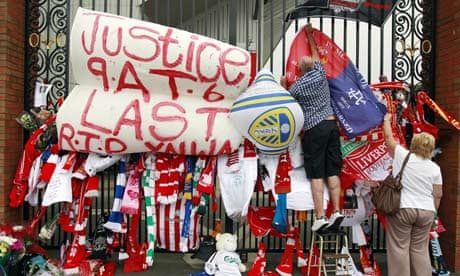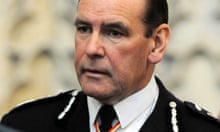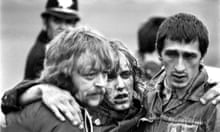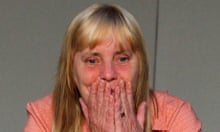As many as 58 victims of the Hillsborough disaster might have been saved if the emergency services had responded better, far more than estimated by the recent report into the 1989 tragedy.
The Hillsborough Independent Panel said last month that 41 of the 96 Liverpool fans who died could have survived if the response had been quicker. However, further analysis of the medical documentation has led to that figure being revised sharply upwards, according to sources close to the families' campaign for justice.
The news that more than 60% of those who died at Hillsborough could have lived will intensify pressure on the attorney general, Dominic Grieve, to reopen inquests into the tragedy. During the original inquests, the coroner imposed a 3.15pm cutoff on evidence, creating the erroneous impression that an effective emergency service response could not have saved lives.
Sources caution, however, that the figure of 58 is not yet definitive and may be slightly lowered: medical evidence is still being examined.
"This question about the numbers is incredibly important, the figure has gone up from 41 to 58 but it is obviously a delicate situation that will greatly add to the distress of the families," the source said.
A number of families have recently met Dr Bill Kirkup, the medical expert from the panel, to discuss the evidence on their loved ones' deaths. One of Britain's most prominent pathologists, Dr Nat Cary, is preparing to brief victims' families individually.
Margaret Aspinall, chairwoman of the Hillsborough Family Support Group, who is due to meet Cary, hopes to learn more about the details surrounding the death of her 18-year-old son, James. "But it is crucial to everyone involved that the figure of 96 remains the most important. We want them to start quashing the inquest verdicts," she said.
The development comes as Keir Starmer, the director of public prosecutions, begins to evaluate the 450,000 pages of evidence uncovered by last month's report to determine whether criminal charges can be brought. The involvement of the CPS brings the prospect of manslaughter charges against senior police officers, the board of Sheffield Wednesday and FA officials over the failures that led to the deaths.
Meanwhile, the Independent Police Complaints Commission has launched the largest ever investigation into police misconduct in connection with the disaster. Up to 200 officers from different forces are facing claims they tried to deflect the blame for the fatal crush.
Lord Falconer, a former lord chancellor, said it was imperative that the IPCC investigation was well-resourced and had "high-quality investigators" to ensure past mistakes were not repeated. "This is a real test for the IPCC," he said. "It has to be clear that the motive is to get to the truth rather than look after their own, to get rid of the taint of corruption that hangs over the last police inquiry." Falconer was referring to the investigation by West Midlands police into the South Yorkshire force's handling of the tragedy, which families believe was biased and which the IPCC on Friday admitted had led to ongoing "questions about [its] adequacy and thoroughness".
The chief constable of South Yorkshire police, David Crompton, will appear before MPs on the home affairs select committee on Mondayto answer questions on Hillsborough. Crompton has admitted "grave errors" were made by the force during the disaster, saying that if "people are shown to have acted criminally then they should face prosecution."
Sir Norman Bettison, the chief constable of West Yorkshire police – an inspector in South Yorkshire at the time of the disaster – is already facing demands from a Merseyside MP, Maria Eagle, that he be suspended.
The families are also keen that the match commander on the day, Chief Superintendent David Duckenfield, should not escape possible criminal charges. Duckenfield opened the Leppings Lane gate that led to the fatal crushing, but then claimed supporters had forced open the gate themselves.
Senior lawyers who have been trawling through the newly released documents are confident that charges of corporate manslaughter could arise. Any possible charges relating to Hillsborough would have to be brought under common law corporate manslaughter rather than the Corporate Manslaughter and Corporate Homicide Act, 2007, which is not retrospective. The traditional obstacle with bringing successful corporate manslaughter charges is difficulties establishing that senior people were aware of the failings. Lawyers say the documents show negligence at the highest levels.
"The issue is that these people were aware of the danger and did nothing about it," one said. The senior QC, who requested not to be named, added: "Corporate manslaughter charges against these bodies is not too late, you need to establish gross negligence and that the senior boards and committees knew of the dangers but did nothing about it."




